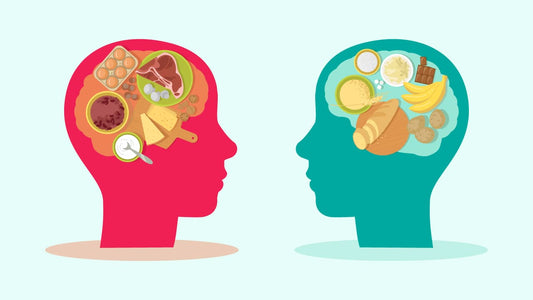Selenium is a critical trace mineral your body needs for optimal physiological function. It can be found in many food sources along with supplementation.
It may only be required as a trace mineral in small amounts, but this nutrient is essential for immunity, antioxidant defenses, inflammation, and metabolism.
And according to some studies, boosting your intake of selenium, either through food or supplementation, can confer antiviral effects, enhance fertility, and may even fend off some chronic diseases.
How's that for a mighty mineral?
If you're unfamiliar with everything selenium does, let us introduce you! In this article, we'll dive into all the details on selenium, its health benefits, and the top food choices to increase your intake through diet.
What Is Selenium?
As we said, selenium is a natural trace mineral found in soil, particularly in foods grown in the ground. There are also small amounts in the water you drink.
Although you may only need tiny amounts of this mineral, it's critical for the formation of selenoproteins that are involved in many aspects of biological function 1.
Selenoproteins represent diverse molecular pathways and various bodily functions. A deficiency has been recognized as a contributing factor to many pathophysiological conditions, including heart disease, neuromuscular disorders, cancer, male infertility, inflammation, and more. A selenium deficiency has also been implicated in immune function 2.
And while we often hear about nutrient deficiencies like vitamin D, selenium is one of the most under-consumed minerals, with an estimated 1 billion people deficient 3. But even though you only need about 55mcg daily, don't underestimate its power—it's small but mighty.
5 Health Benefits Of Selenium
So, why do you need selenium? Let's find out...
1. It has antioxidant properties and protects cells against oxidative damage
Selenium's antioxidant properties are perhaps one of its most notable benefits. By neutralizing free radicals and protecting cells against free radical damage, selenium can mitigate oxidative stress and reduce premature aging 4.
It also has a synergistic effect with other antioxidants like vitamin E. Inflammation and oxidative stress wreak havoc on the body and has been implicated in several chronic diseases.
A 2016 review found that having a higher intake of selenium could protect against breast, lung, colon, gastric, esophageal, and prostate cancers 5.
How? As an essential part of glutathione peroxidase, selenium is also involved in enzyme processes that protect lipids in cell membranes from oxidation.
It plays a role in fighting the degradation of cellular membranes to protect against DNA damage that can cause disease 6.
2. Boosts immunity
Sufficient intake of selenium is also needed for proper immune function. Selenoproteins play a role in virtually all aspects of the immune system, specifically the development and expression of nonspecific, humoral, and cell-mediated responses 7.
Of the 25 selenoproteins, the family of glutathione peroxides exhibits the most beneficial effects on immune function, serving as a group of antioxidant enzymes that mitigate the effects of oxygen and nitrogen radicals 8.
We're not going to dig into the details, but they play a significant key role in attenuating oxidative stress, which underlies many chronic diseases.
Studies show that a selenium deficiency can lead to suppressed immunity, but supplementation, even at low doses, can augment or restore proper immunologic functions. Concerning immune function, a selenium deficiency impacts 8:
- Microbial and viral resistance
- Neutrophil function
- Antibody production
- T and B lymphocyte proliferation
- T lymphocytes and natural killer (NK) cell-mediated cytodestruction
3. May reduce the risk of heart disease
Although not its most prominent role, some research suggests that selenium offers cardioprotective properties and may reduce the risk of developing cardiovascular disease 9.
CVD is the leading cause of death worldwide, and thanks to its powerful antioxidant properties and benefits for reducing inflammation and oxidative stress, selenium can prevent the build-up of plaque in the blood vessels that can lead to strokes, heart attacks, and heart disease.
Studies show that increasing blood selenium concentrations by about 50% can reduce heart disease risk by a whopping 24% 10.
Another study found that selenium supplementation in people with heart disease reduced levels of the inflammatory marker C-reactive protein and increased levels of glutathione peroxidase 5.
4. Regulates thyroid function
Think your thyroid can survive without selenium? Think again! Sufficient selenium levels are needed to produce active thyroid hormones 11.
The thyroid contains the highest selenium concentration of all organs, and because of its antioxidant properties, it can also help protect the thyroid against oxidative damage.
A selenium deficiency interferes with the synthesis of thyroid hormones because it decreases the function of selenoproteins, especially iodothyronine deiodinases (DIOs), which are needed to convert T4 to T3 11.
But it's not just the thyroid that's affected—the thyroid controls your metabolism, and low selenium can therefore interfere with metabolic functions like appetite, sleep, weight, energy, and temperature.
5. May support cognitive health
Need a brain boost? Try selenium. Some studies suggest that a higher intake of selenium and other antioxidants may protect the brain against age-related cognitive decline and neurodegenerative diseases like Alzheimer's 12, 13.
For example, a 2019 meta-analysis found that people with Alzheimer's tended to have lower selenium levels than those without, supporting the mineral's antioxidant role and the involvement of oxidative stress in neurological diseases 13.
Foods High In Selenium
Selenium supplementation is an easy way to meet your requirements. Still, it's a trace mineral widely available in many food sources, so adequate intake shouldn't be hard—especially with a list of all the top selenium-containing foods!
But be mindful that processed and high-heat cooking may destroy the mineral, so try to consume foods in their most natural form, and if they need to be cooked, use gentle heat.
Before we get into the list, there's one food that ranks above all others in selenium content: Brazil nuts. Just one Brazil nut provides over 100% of the recommended daily intake for selenium—about 68 to 91 micrograms per nut.
So, what are your best sources? Check out these 15 foods:
- Brazil nuts
- Salmon
- Tuna
- Turkey
- Cottage cheese
- Chicken
- Mushrooms
- Halibut
- Eggs
- Navy beans
- Sardines
- Sunflower seeds
- Grass-fed beef
- Oats
- Beef Liver
For better reference, salmon generally contains about 25 to 50 micrograms (mcg) of selenium per 100-gram serving, with an average of about 40 mcg per 85-gram or 3-ounce portion.
Yellowfin tuna, on the other hand, contains higher amounts with 92 mcg of selenium per 3 ounces (oz), making it a richer source of selenium—but you also have to be careful of mercury.
Sardines, oysters, clams, halibut, shrimp, salmon, and crab all contain slightly lower amounts, ranging from 40 to 65 mcg per serving.
Your best sources of selenium tend to be found in animal products, except for a few sources. Sunflower seeds, for example, contain around 19 mcg of selenium per ¼ cup, while one cup of raw oats contains up to 23 mcg.
For more plant-based options, consider these:
- Baked beans
- Cooked spinach
- Lentils
- Enriched pasta
- Brown rice
- Whole wheat bread
Alternatively, topping up your diet with something like Performance Lab NutriGenesis Multi and PL-Immune can help boost selenium intake for those who aren't getting enough from a plant-based diet.

Selenium Deficiency
Although a selenium deficiency isn't super common, certain groups of people are more susceptible to a deficiency because of poor diet or absorption.
Most people aren't aware that there are four naturally occurring types of selenium:
- Elemental selenium
- Selenide
- Selenite
- Selenate
Selenate and selenite occur predominantly in water, whereas elemental selenium and selenide are both found in food.
A selenium deficiency isn't always the easiest to recognize, but studies have shown that it can increase the risk of several health problems, including 14:
- Inflammation
- Poor immune function
- Cognitive decline
Not sure how your levels are? Watch out for these deficiency symptoms:
- Reproductive issues
- Muscle weakness
- Fatigue
- Brain fog
- Thyroid dysfunction (and associated symptoms)
- Hair loss
References
- Labunskyy VM, Hatfield DL, Gladyshev VN. Selenoproteins: molecular pathways and physiological roles. Physiol Rev. 2014;94(3):739-777.
- Shreenath AP, Ameer MA, Dooley J. Selenium Deficiency. (Updated 2022 Jul 19). In: StatPearls (Internet). Treasure Island (FL): StatPearls Publishing; 2022 Jan-. Available from: https://www.ncbi.nlm.nih.gov/books/NBK482260/
- Jones GD, Droz B, Greve P, et al. Selenium deficiency risk predicted to increase under future climate change. Proc Natl Acad Sci USA. 2017;114(11):2848-2853.
- Tinggi U. Selenium: its role as antioxidant in human health. Environ Health Prev Med. 2008;13(2):102-108.
- Ju W, Li X, Li Z, et al. The effect of selenium supplementation on coronary heart disease: A systematic review and meta-analysis of randomized controlled trials. J Trace Elem Med Biol. 2017;44:8-16.
- Rayman MP. The importance of selenium to human health. 2000;356(9225):233-241.
- Kiremidjian-Schumacher L, Stotzky G. Selenium and immune responses. Environ Res. 1987;42(2):277-303.
- Rayman MP. Selenium and human health. 2012;379(9822):1256-1268.
- Jenkins DJA, Kitts D, Giovannucci EL, et al. Selenium, antioxidants, cardiovascular disease, and all-cause mortality: a systematic review and meta-analysis of randomized controlled trials. Am J Clin Nutr. 2020;112(6):1642-1652.
- Flores-Mateo G, Navas-Acien A, Pastor-Barriuso R, Guallar E. Selenium and coronary heart disease: a meta-analysis. Am J Clin Nutr. 2006;84(4):762-773.
- Ventura M, Melo M, Carrilho F. Selenium and Thyroid Disease: From Pathophysiology to Treatment. Int J Endocrinol. 2017;2017:1297658.
- Berr C, Arnaud J, Akbaraly TN. Selenium and cognitive impairment: a brief-review based on results from the EVA study. 2012;38(2):139-144.
- Varikasuvu SR, Prasad V S, Kothapalli J, Manne M. Brain Selenium in Alzheimer's Disease (BRAIN SEAD Study): a Systematic Review and Meta-Analysis. Biol Trace Elem Res. 2019;189(2):361-369.
- Kiełczykowska M, Kocot J, Paździor M, Musik I. Selenium - a fascinating antioxidant of protective properties. Adv Clin Exp Med. 2018;27(2):245-255.















